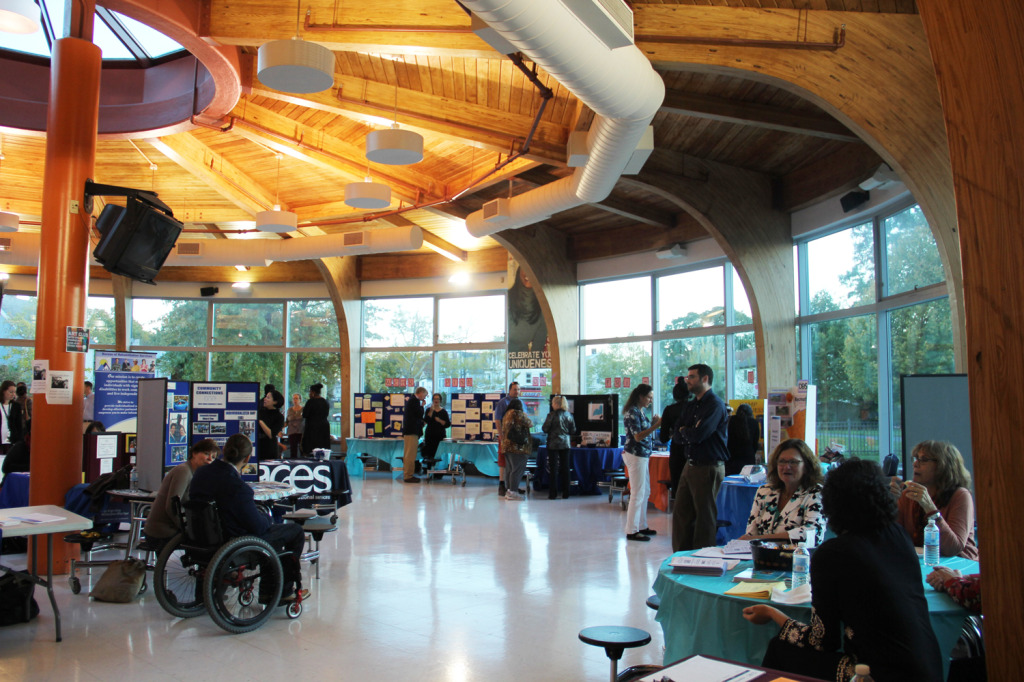Tables with colorful flags and dishes of candy lined the circular perimeter of the cafeteria at Hill Regional Career High School last night. There, parents, teachers and local advocates convened for the annual New Haven Public Schools Parent Resource Fair.
New Haven Public Schools, the Department of Developmental Services and the Parent Partnership Council all collaborated to host the event. According to organizers, the fair aimed to provide parents of disabled children with the resources they need to get involved in their children’s education, extracurricular activities and post-educational vocations.
“The goal of the fair is to get parents more involved in the decisions concerning their children’s education and to bring awareness to the resources available to parents so that those decisions are well-informed,” said Marilyn Calderón, executive director of Connecticut Parent Power, an organization that encourages parents to devote more attention to their children’s education.
On the perimeter of the cafeteria, different organizations set up tables and posters to introduce parents to a wide range of potential extracurricular activities for their children, including camps, music and after-school programs, in addition to programs focused more on early childhood development and life after high school.
Eric Jones, who oversees the New Haven area for the Bureau of Education and Services for the Blind, said that, while it can be easy for parents to get information about special education during school, some of the most important years are the transition from school to work. He added that studies have shown that most disabled children who go straight from school to work stay out of the criminal justice system.
Jenna Lewis, a special-education graduate from the Gengras Center in West Hartford, attended the event, manning a table about self-advocation, whereby disabled students learn skills to advocate for themselves. She said her role is to help people with disabilities vote, attend schools and colleges, speak publicly and navigate transportation safely.
Lewis said she believes she can effectively advocate for the special-education programs as a graduate herself. She added that she believes she contributes a lot to a system in which decisions were once made only by people studying intellectual disabilities, not people who actually lived with them.
Parents Colette and Thomas Jagoda said they were pleased with the abundance of vendors, adding that at similar events in the past, there have sometimes been only five vendors, and information showing where to access resources did not reach the parents.
“[This event] had enough information so that you can educate yourself and have more of a positive influence on your child’s life,” said Colette Jagoda.
Both of them added that they wished that more parents had attended.
Kathy Abate, who works for the Board of Education and serves as supervisor of special education and social work, said that she was happy with the turnout but hopes to increase parent involvement at future events.
Currently, the organization publicizes the events by sending flyers home with students, emailing parents and posting it on the NHPS and DDS websites. They plan to increase advertising next year, according to Abate.
According to Special Education Advisor, a website with information on special education rights and laws, under the Individuals with Disabilities Education Act — which requires that schools provide individualized programs for students with disabilities — the number of children and students served has increased 81 percent since 1977.








